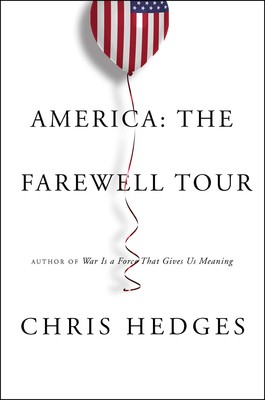 An Irish native, Ber moved to Sydney in 1995 and spent much of her early career working within the financial sector. Since then, she has pursued writing full-time and has thus far penned eight novels, that include Once Lost, Worlds Apartand Less Than Perfect. The Missing Pieces of Sophie McCarthymarks the first work to be published under the name B. M. Carroll. She drops by to talk about her latest book and lots more.
An Irish native, Ber moved to Sydney in 1995 and spent much of her early career working within the financial sector. Since then, she has pursued writing full-time and has thus far penned eight novels, that include Once Lost, Worlds Apartand Less Than Perfect. The Missing Pieces of Sophie McCarthymarks the first work to be published under the name B. M. Carroll. She drops by to talk about her latest book and lots more.
A review of The Usual Story by Libby Sommer
 It is impressive the ability of Sommer to fragment the narrative when we encounter Sofia’s visits to the psychiatrist. We read about her participation in Milongas, asking relatives about her past, and about love and its many facets. All of these interspersed with poetic descriptions of place. Sydneysiders will recognise many areas of the Eastern suburbs in Sommer’s vivid imagery.
It is impressive the ability of Sommer to fragment the narrative when we encounter Sofia’s visits to the psychiatrist. We read about her participation in Milongas, asking relatives about her past, and about love and its many facets. All of these interspersed with poetic descriptions of place. Sydneysiders will recognise many areas of the Eastern suburbs in Sommer’s vivid imagery.
A review of All The Answers by Michael Kupperman
 As dementia begins to rob an already private and absentminded man of his memories, Michael becomes set on reconstructing his father’s childhood from recordings, news articles, and his father’s own accounts, in a journey to understand what had crafted his father into the man he is, and how that has formed Michael himself.
As dementia begins to rob an already private and absentminded man of his memories, Michael becomes set on reconstructing his father’s childhood from recordings, news articles, and his father’s own accounts, in a journey to understand what had crafted his father into the man he is, and how that has formed Michael himself.
A review of Writing a Novel by Richard Skinner
 The book is easy to follow, and is well-structured, moving smoothly from novel ideation through planning, character development, point of view, dialogue, plotting, conflict, dealing with tie, pace, setting and genre. Though the book is practically oriented, Skinner doesn’t dumb down the complexity of novel writing, or suggest, as many how-to books do, that it can be done quickly and painlessly.
The book is easy to follow, and is well-structured, moving smoothly from novel ideation through planning, character development, point of view, dialogue, plotting, conflict, dealing with tie, pace, setting and genre. Though the book is practically oriented, Skinner doesn’t dumb down the complexity of novel writing, or suggest, as many how-to books do, that it can be done quickly and painlessly.
A review of I Truly Lament: Working Through the Holocaust by Mathias B. Freese
 I realize this book is a work of fiction, but it cuts deeply, and leaves the reader contemplating some of the horror that people suffered during Hitler’s reign. Though not the easiest book to read, I Truly Lament is compelling, and very well written. The book was one of three finalists chosen in the 2012 Leapfrog Press Fiction Contest out of 424 submissions, and it’s easy to see why.
I realize this book is a work of fiction, but it cuts deeply, and leaves the reader contemplating some of the horror that people suffered during Hitler’s reign. Though not the easiest book to read, I Truly Lament is compelling, and very well written. The book was one of three finalists chosen in the 2012 Leapfrog Press Fiction Contest out of 424 submissions, and it’s easy to see why.
An interview with Tom Maremaa
![]() The author of Reykjavik: A Novel talks about his book, the setting – both time and place, the composition, his characters and their transitions, and more.
The author of Reykjavik: A Novel talks about his book, the setting – both time and place, the composition, his characters and their transitions, and more.
A review of Gmorning, Gnight!: Little Pep Talks for Me & You by Lin-Manuel Miranda
 There’s a definite sense that Miranda really wants to make everyone feel a little bit better about themselves, and though this book won’t be for everyone, it will appeal to young people in need of a hug. Each affirmation in fact feels a bit like a hug.
There’s a definite sense that Miranda really wants to make everyone feel a little bit better about themselves, and though this book won’t be for everyone, it will appeal to young people in need of a hug. Each affirmation in fact feels a bit like a hug.
An Interview with Imogen Edward-Jones
 The Witches of St Petersburg’s Imogen Edwards-Jones talks about the making of her new novel, the real characters behind the book, her research, historical fiction in general, and lots more.
The Witches of St Petersburg’s Imogen Edwards-Jones talks about the making of her new novel, the real characters behind the book, her research, historical fiction in general, and lots more.
A review of In the Measuring by Carol Smallwood
 The aforementioned exuberance comes with the author’s novel treatment of the everyday—those ordinary, mundane tasks and chores we take for granted. Who would think to write a pantoum about dishwashing liquid? Yet Smallwood carries it off, and braids colloquial language with scientific. She assumes a persona the reader can identify with.
The aforementioned exuberance comes with the author’s novel treatment of the everyday—those ordinary, mundane tasks and chores we take for granted. Who would think to write a pantoum about dishwashing liquid? Yet Smallwood carries it off, and braids colloquial language with scientific. She assumes a persona the reader can identify with.
A review of America: The Farewell Tour by Chris Hedges
 America: the Farewell Tour is an impressive book. Readers who lack a background in economics but are troubled with what is going on in the world will be absorbed in his analysis. Hedges is no academic pronouncing from an ivory tower, but a reporter who has gone out among the victims of global capitalism to gather information.
America: the Farewell Tour is an impressive book. Readers who lack a background in economics but are troubled with what is going on in the world will be absorbed in his analysis. Hedges is no academic pronouncing from an ivory tower, but a reporter who has gone out among the victims of global capitalism to gather information.